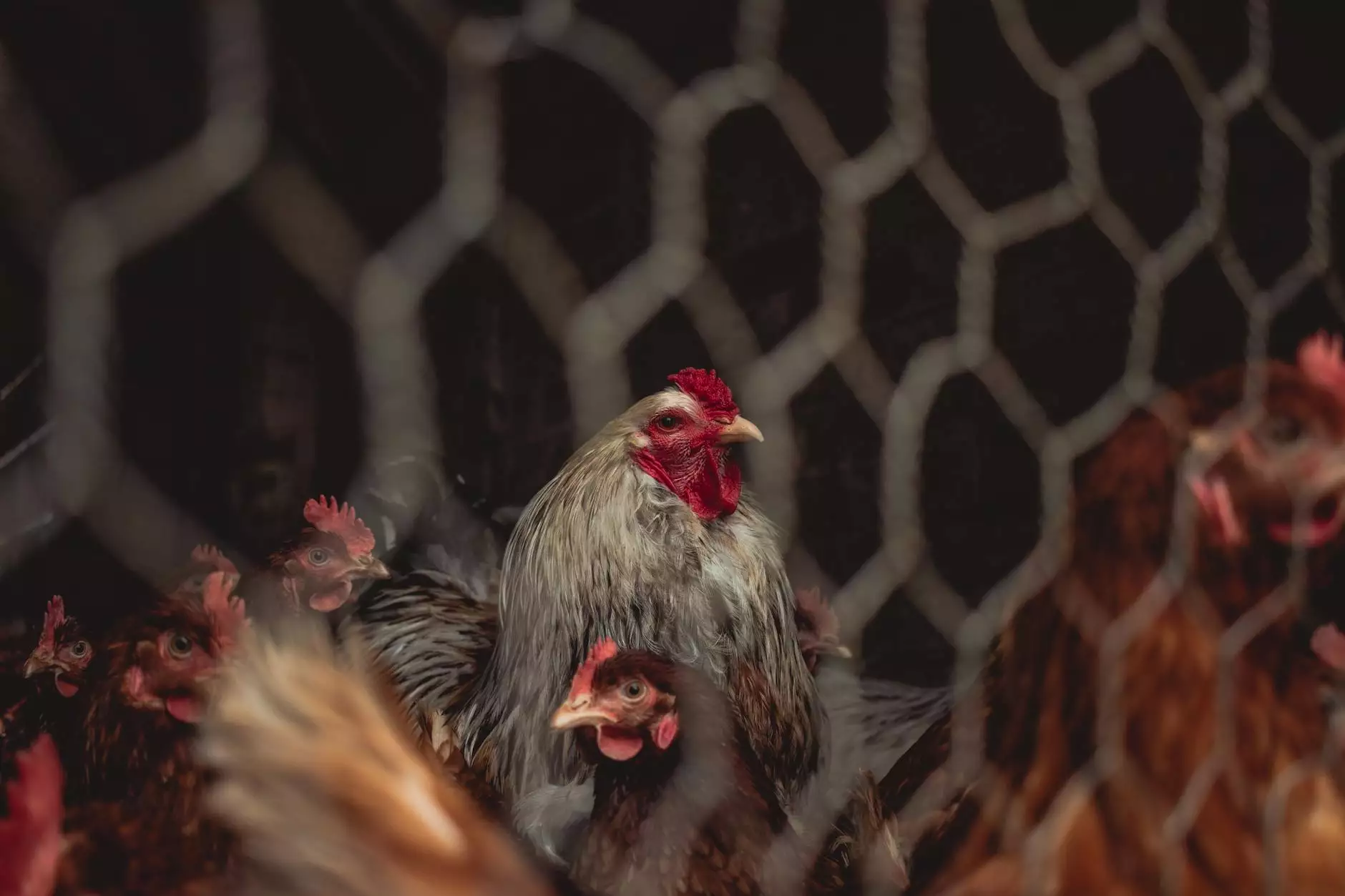Understanding the Poultry Export Market

The world of poultry export is rapidly evolving, presenting both opportunities and challenges for businesses engaged in this lucrative industry. As one of the primary sources of protein globally, poultry plays a crucial role in food security, nutrition, and economic development. This article delves into the multifaceted realm of poultry export, particularly focusing on the Brazilian poultry sector and the advantages of understanding chicken in bulk trade.
The Global Poultry Industry Landscape
The global demand for poultry has surged in recent years. With growing populations and increasing health consciousness, consumers are gravitating towards chicken as a primary protein source due to its lower fat content and versatility in cuisine. Exporting poultry efficiently requires a comprehensive understanding of international markets, regulatory landscapes, and consumer preferences.
Key Players in the Poultry Export Market
Among the notable players in the poultry export market, Brazilian poultry exporters stand out due to their production capabilities and competitive pricing. Brazil is recognized as one of the largest chicken producers and exporters worldwide, often catering to markets across Asia, Europe, and the Middle East.
Key factors contributing to Brazil's success in the poultry sector include:
- Advancements in Technology: Utilizing modern farming techniques and processing technologies ensures high-quality yields.
- Cost-Effectiveness: Brazil's favorable climatic conditions and agricultural practices lower production costs.
- Strong Export Infrastructure: Well-developed logistics and transport systems facilitate efficient distribution.
- Compliance with International Standards: Adherence to food safety and quality regulations strengthens global trust.
Exploring Brazilian Poultry Exporters
Brazilian poultry exporters have made a significant mark in the international market. Companies like Frozen Chicken Group exemplify excellence in this field. They focus not only on exporting high-quality chicken but also on building long-term relationships with their clients based on trust and reliability.
The Importance of Quality Control
Quality control is paramount in the poultry export business. Exporters must ensure that products meet the highest standards of safety and quality to satisfy international market requirements. This includes strict adherence to:
- Hygiene practices throughout the production process.
- Regular inspections and audits by regulatory bodies.
- Certifications that affirm compliance with global food safety standards.
Market Trends Influencing Poultry Export
The poultry export market is influenced by various trends that shape consumer behavior and market dynamics. Recognizing these trends is essential for exporters who wish to remain competitive.
Health Trends and Consumer Preferences
Today's consumers are increasingly health-conscious, seeking products that are free from hormones and antibiotics. Consequently, poultry exporters are now investing in organic and free-range farming practices to meet this demand. Additionally, innovative products such as pre-marinated chicken or value-added chicken products have gained popularity, providing convenience to consumers.
Environmental Sustainability
Sustainability is another critical concern influencing the poultry sector. Today’s exporters are adopting more sustainable practices, such as reducing carbon footprints and utilizing renewable energy sources. This not only appeals to environmentally conscious consumers but also helps in compliance with increasingly stringent environmental regulations globally.
The Process of Poultry Export
Understanding the steps involved in the poultry export process is essential for businesses looking to enter this market. The process includes:
- Production: Raising chickens in a bio-secure environment to minimize disease risk.
- Processing: Slaughtering and processing the chicken according to health regulations.
- Packaging: Using safe and effective packaging to maintain quality during transit.
- Logistics: Coordinating transportation to ensure timely delivery to international markets.
- Customs Clearance: Navigating regulatory requirements to ensure smooth import and export processes.
Challenges Faced by Poultry Exporters
While the poultry export market holds immense potential, it is not without its challenges. Key challenges include:
- Fluctuations in Global Market Prices: Prices can vary significantly due to geopolitical issues, trade agreements, and market demand.
- Regulatory Changes: Keeping up with changing regulations in target markets can be daunting for exporters.
- Competition: Intense competition from other exporting countries can impact market share.
- Disease Outbreaks: Outbreaks of avian influenza or other diseases can severely affect production and export capabilities.
The Future of Poultry Export
The future of the poultry export market appears bright, driven by continuous demand and evolving consumer preferences. Brazilian poultry exporters like Frozen Chicken Group are well-positioned to capitalize on emerging opportunities, especially in new and developing markets.
Embracing Technology and Innovation
Moving forward, integrating technology into farming and processing practices will play a crucial role. Automated systems, data analytics, and blockchain technology are transforming how poultry exporters manage their operations, enhancing efficiency and transparency throughout the supply chain.
Focusing on Niche Markets
Pioneer exporters are seeking to explore niche markets by developing specialized products tailored to unique consumer preferences. For instance, halal chicken, organic options, or ready-to-eat meals have gained traction in specific demographics.
Conclusion: Thriving in the Poultry Export Industry
The poultry export sector presents a world of opportunities. Brazilian exporters, particularly those like Frozen Chicken Group, possess the capabilities and resources to lead in this competitive market. By embracing quality, sustainability, and innovation, businesses can not only participate in this thriving industry but also contribute to global food security and economic prosperity.
In closing, the journey through the poultry export landscape is filled with potential, and understanding the dynamics at play is crucial for success. As companies navigate this market, they must remain adaptable, seize opportunities, and maintain a commitment to excellence.









